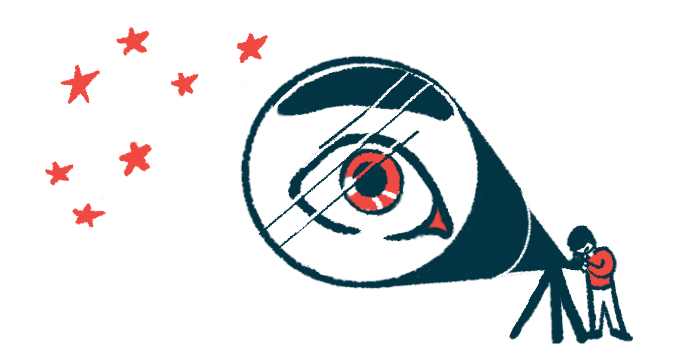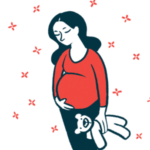New optometric technology may help reduce fall risk
MS patients among those who may benefit from NeurOpTrek system
Written by |

Sensoria Health and Padula Rehabilitation Technologies (PRT) have launched a wearable system crafted for optometry practices to improve balance, gait, and coordination, and to help reduce the risk of falls, particularly among older people.
The system, NeurOpTrek powered by Sensoria, is designed to assess a person’s fall risk and lessen it through improved vision and walking ability. It targets the elderly, athletes seeking to improve performance, and those with conditions such as multiple sclerosis (MS) that make them more prone to falls and vision problems.
More than one in four adults age 65 and older report experiencing at least one fall each year, frequently due to incorrect shifting of body weight. A three-year study of fall rates and risk factors among older adults showed the importance of vision in controlling the center of body mass while walking.
“Sensoria Health has been working closely with our team at Microsoft leveraging the Azure Cloud for a number of years,” Rajya Bhaiya, senior director MedTech, Health & Life Sciences Data and AI (artificial intelligence) at Microsoft, said in a press release.
“We are incredibly excited now to see NeurOpTrek come to life. Together with PRT their clinical and engineering multidisciplinary teams have tackled the problem of risk of fall in a very innovative way. Thanks to the new data collected, the AI and predictive analytics opportunities are endless,” Bhaiya added.
The system features Sensoria smart socks that have textile pressure sensors and microelectronics to provide real-time balance and gait data. The socks are connected to a dedicated Android tablet with proprietary NeurOpTrek software and state-of-the-art, AI-driven algorithms.
The algorithms provide automatic detection and monitoring of specific center of mass and gait activity, in conjunction with real-time assessments of foot landing and pressure. The cumulative data can help clinicians gauge deviances between the centers of mass and pressure, permitting a more accurate vision assessment and correction, including optometrist selection of the appropriate yoked prism lenses.
“NeurOpTrek offers an evidence-based way for optometrists to help patients who have issues with posture, balance, and potential fall risk. Based on latest research, it’s an innovative system for optometrists to evaluate the relationship between a patient’s vision and the proprioceptive base of support in order to improve gait and balance,” said William V. Padula, founder of Padula Rehabilitation Technologies and an optometrist and vision rehabilitation specialist.
Training included
The new system comes with technical and clinical training and ongoing support. Microsoft is currently demonstrating the technology in Chicago at this year’s Healthcare Information and Management Systems Society meeting, April 17-21.
In addition, Sensoria and PRT have 10 slots available for neuro-optometric rehabilitation optometrists for the NeurOpTrek Early Adopter Program. To apply, send an email to [email protected]
“We are excited to offer optometrists an easy to use, innovative and self-contained system for assessing patients’ need for yoked prism lenses, to improve eye tracking and train the brain to better process visual information,” said Davide Viganò, Sensoria Health co-founder and CEO.
“With millions of older adults suffering from falls, patients recovering from traumatic brain injuries, and people engaged in athletic activities, the new NeurOpTrek system provides a groundbreaking way to contribute to address this challenging problem,” Vigano said.
Sensoria Health and PRT won a prize in October during the Inaugural Bright Ideas Pitch Competition in San Diego. The competition was launched by the American Academy of Optometry Foundation, which recognizes the role of vision in preventing and reducing fall risk.
Sensoria Health develops smart garments and AI software solutions to improve people’s lives. Padula Rehabilitation Technologies uses knowledge of visual processing to develop technology that diagnoses and rehabilitates those with vision issues due to neurological events.



